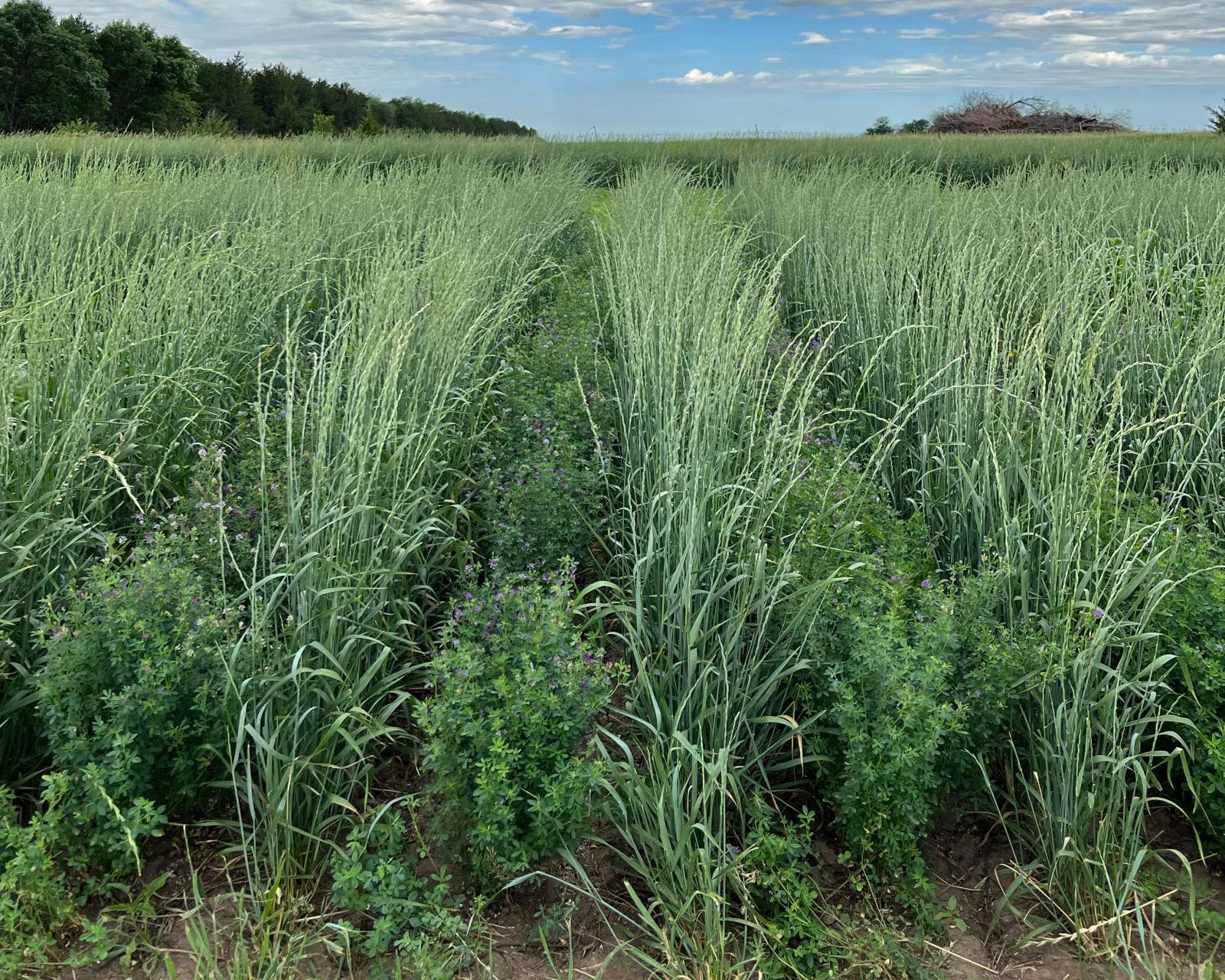Content
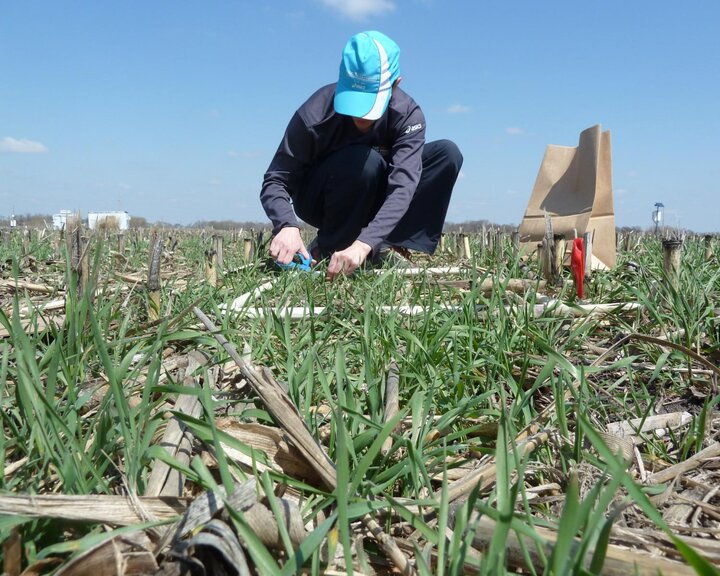
Evaluating impacts and benefits of cover crops in Nebraska
Our team is involved with several projects to support greater use and success of cover crops in the state.
The Cover Crop Initiative is a project funded by USDA-NRCS primarily to establish cover crop variety trials from 2022-2024 at several sites across the state. This effort includes a number of collaborators from other experiment stations and with Nebraska extension. Variety selection is a key decision made by producers with respect to cash crops, and the goal of these experiments in Nebraska is to support such decision-making with respect to cover crops by measuring growth and other characteristics of different cover crop species and varieties side-by-side. Results from the trials can be found here, and in 2025, we published results in Agronomy Journal from two years of spring planted trials in eastern Nebraska. Bridget McKinley and Grace Pacheco’s MS projects were a part of this effort, and project management and coordination has been led by postdoc Vesh Thapa.
We are a part of the Precision Sustainable Agriculture Project where we have field trials and on-farm research related to the weed-pest interactions of planting corn “green” into a standing cereal rye cover crop, optimizing nitrogen rates in corn following different cover crop species, and more. Tauana Ferreira de Almeida’s Ph.D. research was a part of these efforts. This grant also supported the creation of a unique multi-institution cover crop course that (more information on the teaching page).
In the past, we have worked with the cropping systems platform APSIM to answer questions about cover crop management in Nebraska and the broader Corn Belt. This included work with field data from Nebraska evaluating a range of relative maturity corn hybrids that might extend the growth window for cover crops. We published some of this work in 2020 in Agronomy Journal. The Nebraska Environmental Trust funded related work from 2019-2022, including the 2022 launch of a cover crop biomass calculator for Nebraska which uses the APSIM platform to predict cover crop growth, water use and nitrogen uptake depending upon location, soil type and planting/termination dates. Our ongoing efforts with the Cover Crop Initiative will contribute the biomass calculator improvements. Andrea has also collaborated with colleagues to understand the impact of cover crops on weeds in the Corn Belt, and some of this work was published in Agricultural and Environmental Letters in 2020 and Weed Research in 2021.
Integrating Human Dimensions in Teaching and Research for Community Development and Fugure Crop Suitability
People are the backbone of agriculture—farmers, crop advisors, policymakers, and students all play a vital role in shaping a thriving industry. By actively engaging with them in the research process, we strengthen partnerships and integrate innovative local knowledge with our own expertise. This collaboration helps develop practical processes and solutions that directly support farmers and others in the sector. Our team is dedicated to projects that put this approach into action, ensuring that research is both informed by and beneficial to those who drive Nebraska agriculture and the policymakers who support them.
One of those projects represents a unique collaborative approach, funded by the National Science Foundation (NSF), Andrea and Dr. Brooke McWherter (natural resource social scientist at UNL) are collaborating with colleagues at Emory University and Ohio State University on a NSF funded research grant, The Thriving Future CropScapes project. This research represents an innovative interdisciplinary approach that combines predictive data modeling and social-science methods including producer focus groups, expert interviews, and consensus surveys to investigate what the suitability of crops might look like in the future for several states including Nebraska.
Andrea and Brooke are also working together to expand on prior research with women landowners, to develop a non-operating agricultural women landowner cohort, where they aim to address historical challenges for non-operating women landowners in obtaining appropriate resource needs and trainings while supporting the development of a peer-based community. This work is being done parallel to another cohort of beginning farmers being led by Dr. Angie Carter (Michigan Tech University). You can see a short video about this work presented by Andrea at the Nebraska Sustainable Agricultural Society Conference – here).
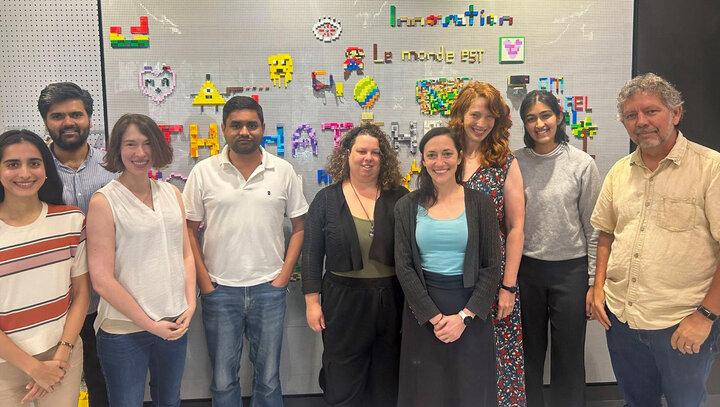
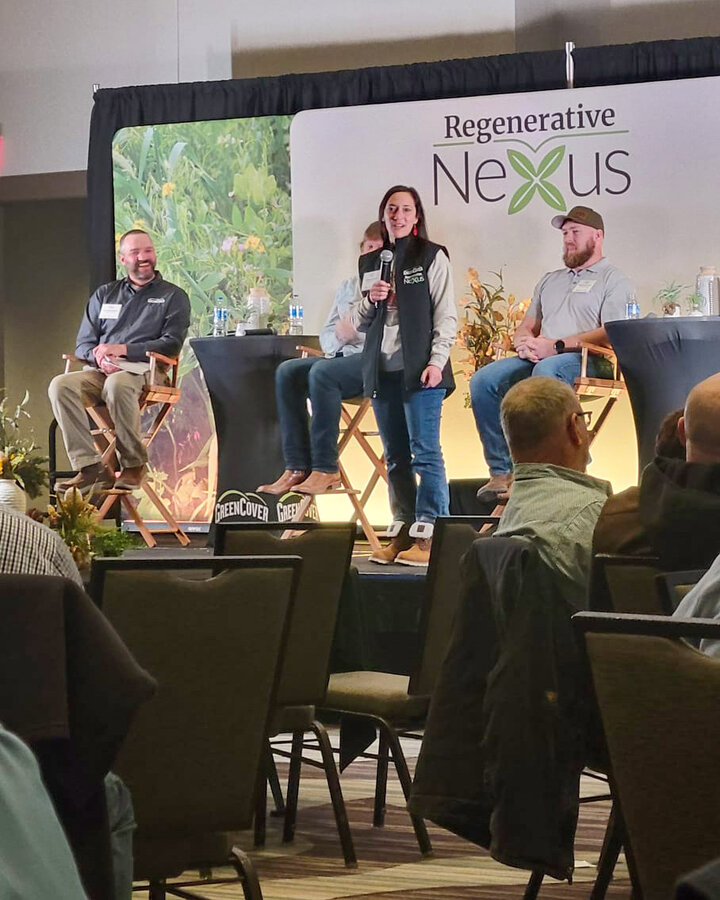
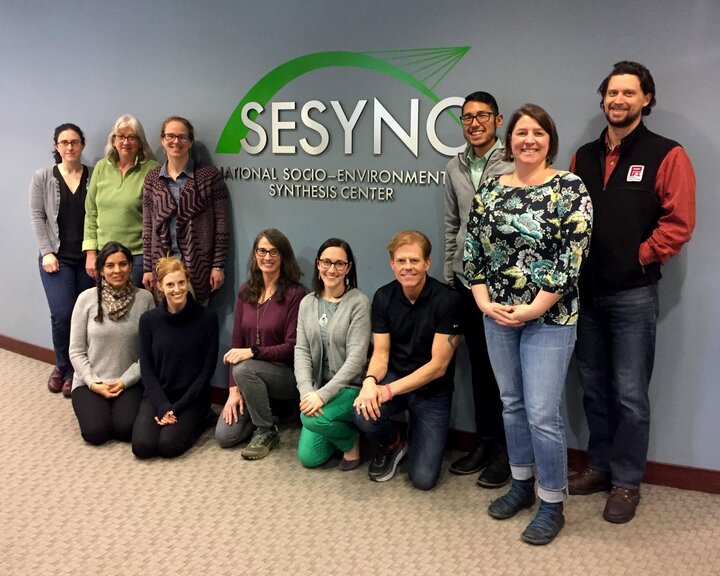
Understanding soil health practice adoption and management
Improving soil health is increasingly recognized as a solution to many current challenges including reducing water pollution and reversing soil degradation by a range of stakeholders including farmers, policy-makers and private industry. It is imperative for University of Nebraska scientists to continue to advance our understanding of soil health management systems in order to cultivate cropping systems that address natural resource concerns. Our work on these topics includes efforts to address social, economic and policy barriers preventing the wider use of soil health management systems.
We collaborated on a project with Nebraska Natural Resources Conservation Service (NRCS) to support research and outreach activities with their Soil Health Demonstration Farms across the state. The graduate work of Fernanda Krupek and Elizabeth Oys was a part of this project, and produced a number of publications (including in Geoderma & Agricultural and Environmental Letters), Cropwatch articles as well as videos/articles about improvements to nutrient use efficiency from cover crops and strategies to improve on-farm research soil sampling.
Andrea and Dr. Angie Carter (Michigan Tech University) worked together to support collaborative conservation planning project with women landowners and their tenants (SARE produced a short video summary of the project). This work was also incorporated into our team’s teaching efforts, which resulted in a scholarship of teaching paper published in Natural Sciences Education.
Andrea was a Co-PI on a National Science Foundation funded collaboration supported by the Socio-Environmental Synthesis Center (SESYNC) which to map the “where” and “why” of soil health practices from 2018-2020. This collaboration led to a 2020 publication in Frontiers in Sustainable Food Systems that quantified the opportunities for conservation programs to better prioritize soil and environmental health.
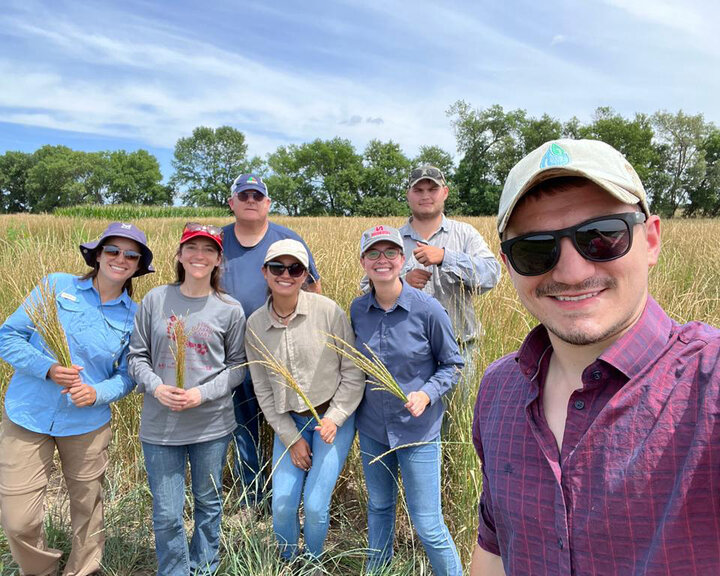
Answering fundamental agronomic questions about perennial grains
We are working with collaborators around the Midwest and across the U.S. to evaluate the management and production of Kernza®, a perennial grain crop developed by the Land Institute. Andrea and team are a part of the Kernza® CAP, “Developing and deploying a perennial grain crop enterprise to improve environmental quality and rural prosperity.”
Additionally, we participated in a Kernza variety trial with seven other collaborators, planted in 2018 (two years of data published on Cropwatch), and initiated research on organically managed Kernza in 2019. Through the KernzaCAP, we are evaluating existing data on nitrogen rates and Kernza performance across N-P-K rates, as well as exploring intercropping kernza with legumes. Research technician Tomie Galusha, as well as former MS students Roberta Rebesquini and Madeline Johnston have been involved in these efforts.
In 2025, with our team, we published results from the first year from the CAP experiments finding that environment was more of a factor than fertility treatments on grain yield.
